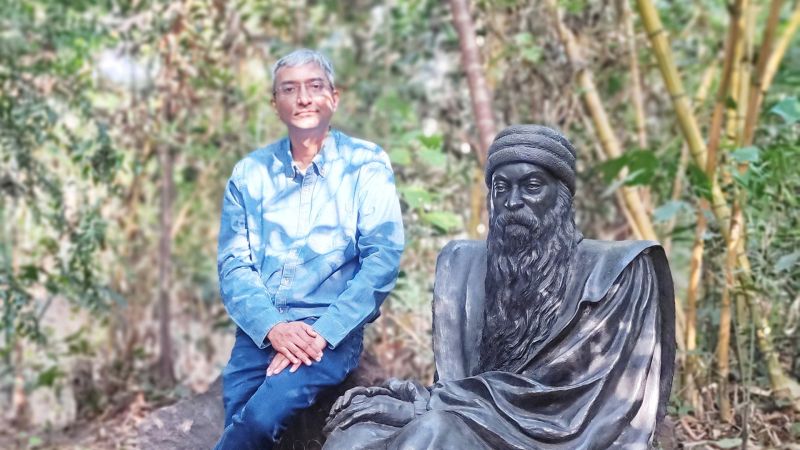
Today, as we celebrate hashtagJanmashtami, the birth of Lord Krishna, most of us recall his many roles – playful child of Gokul, enchanting lover of Radha, wise strategist of Kurukshetra, and divine guide of the Bhagavad Gita.
But beyond these familiar images lies a relationship often overlooked, yet profoundly relevant even in our times: the hashtagSakha–Sakhi bond between hashtagKrishna and hashtagDraupadi.
In Sanskrit, hashtagSakha means friend. But in the emotional vocabulary of Draupadi, it meant so much more:
– An emotional refuge.
– A moral anchor.
– A protective force.
– A spiritual companion.
??? ???????? ?????? ??????? ??? ?????
Draupadi didn’t call Krishna Sakha out of social convenience or affectionate habit – it was a a soul-affirming truth and a declaration of trust.
She called him Sakha, because:
– He was her protector in moments of helplessness,
– He was someone to whom she could speak her heart without fear of judgment or misunderstanding and,
– He was guiding her through anger, sorrow, and the pursuit of justice.
It was a connection woven with trust, dignity, and spiritual intimacy. Their relationship reminds us that love need not always be romantic to be life-defining. Their bond was unshakable, unspoken in rules, and untouched by desire, yet it carried the intensity of a lifelong vow.
?? ???? ? ???????????? ???????? ??????
The concept of Sakha is often misunderstood, because friendship between men and women is still seen through the lens of romance or suspicion. So, can a woman – girlfriend or wife – openly call another man her Sakha and have it accepted with respect?
Draupadi teaches us that it’s not wrong to have a soul-level connection with someone as long as the bond is rooted in purity, purpose, and boundaries.
If a woman finds her Sakha – someone who truly sees her, hears her, understands her and protects her emotionally, she carries a quiet responsibility. He must remain a sacred part of her story – someone whose presence is acknowledged with grace and respect. Because in the absence of openness, even the purest bond can become a source of discomfort or emotional confusion.
????? ???????????
The story of Draupadi and Krishna reminds us that sometimes the deepest bond we share with another soul is one that exists outside of conventional definitions as Sakha and Sakhi.
For Draupadi, Sakha was not a word – it was a lifeline. After all, Krishna and Draupadi didn’t need to name their bond. They lived it. They protected it.
In the end, the question is not whether such friendships can exist today. The question is whether we have the maturity, honesty, transparency and courage to hold them sacred – like Draupadi and Krishna once did.
